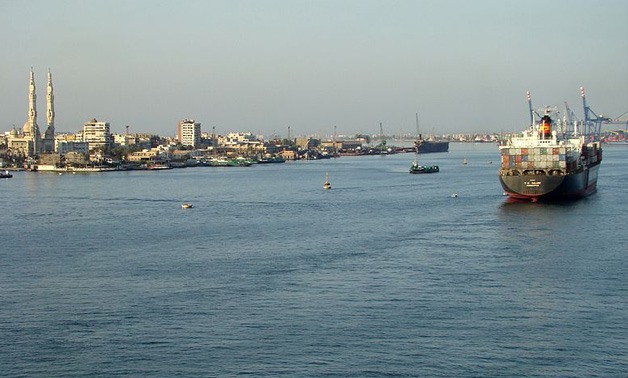
Suez Canal - trade free zones will return operating in Egypt per the new investment law- Creative Commons via Wikipedia
CAIRO – 1 May 2017: The return of private free trade zones has been approved by the parliamentary economic committee and awaits a general vote on Tuesday; however, much like the government, businesses have mixed opinions about the decision.
The 2015 investment law had cancelled private free trade zones, which were first introduced in the early 1970s to encourage exports and foreign investments in hopes to increase the hard currency reserves.
“Private free trade zones are responsible for around 80 percent of the smuggling operations that enters the local market across the custom borders of these zones,” Ahmed sheha, member of the importer division at the Federation of Egyptian Chambers Of Commerce, told Egypt Today.
Sheha, a former head of the importer division, estimated an annual loss of revenue of 66 billion EGP ($3.6 billion) due to smuggling at private free trade zones. Head of the division, Hamdy el-Naggar, agrees. He told Egypt Today that private free trade zones are the “back door” of illegal smugglers.
Meanwhile, Mohamed Guinedy, head of the industrial investors’ syndicate, said private free trade zones would attract more Foreign Direct Investment (FDI) in a short period of time, adding that neighboring countries, such as Tunisia and Morocco, have applied the concept and are now reaping its benefits.
Former Investment Minister Ashraf salman was an avid supporter of private free trade zones, but he failed to implement the idea during his time. When he was replaced by Dalia Khorshid in late 2016, she backed the anti-private free trade zones team.
Shortly after Sahar Nasr took over the ministry last March, the investment law was sent to the parliament for amendment.
Mohram Helal, Vice president of the Egyptian Federation of Investors Associations, said that the move would strongly contribute to doubling the export rates in the near future.
Free zones are considered an outlet that attracts foreign and local investments. They encourage exports because of the advantage it has in the form of tax and customs.
There are two types of free trade zones: public free zones and private free zones; the latter is established for a specific project or company.
A project in a free trade zone obtains financial incentives, such as; no export duties, no imports duties, no duties on domestic components sold locally and reduced duties on non-domestic components sold also locally.


Comments
Leave a Comment